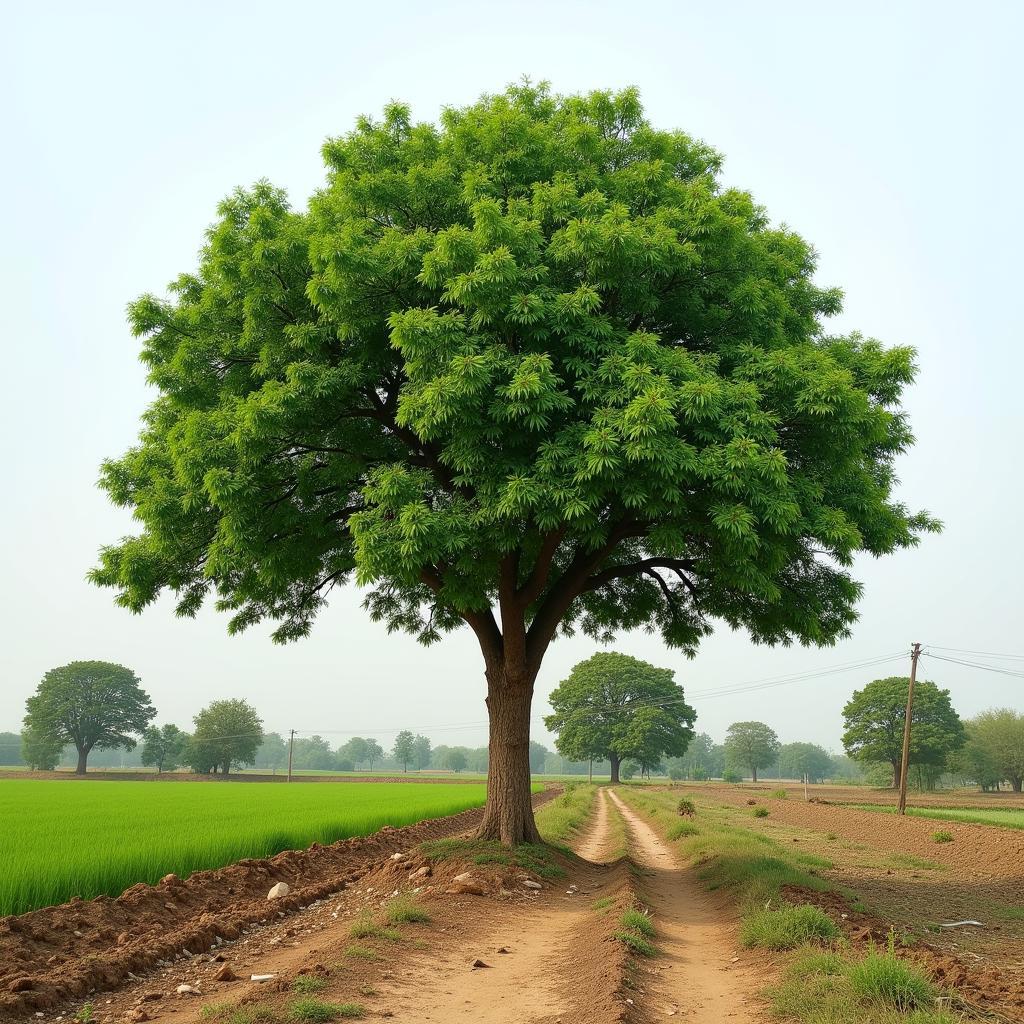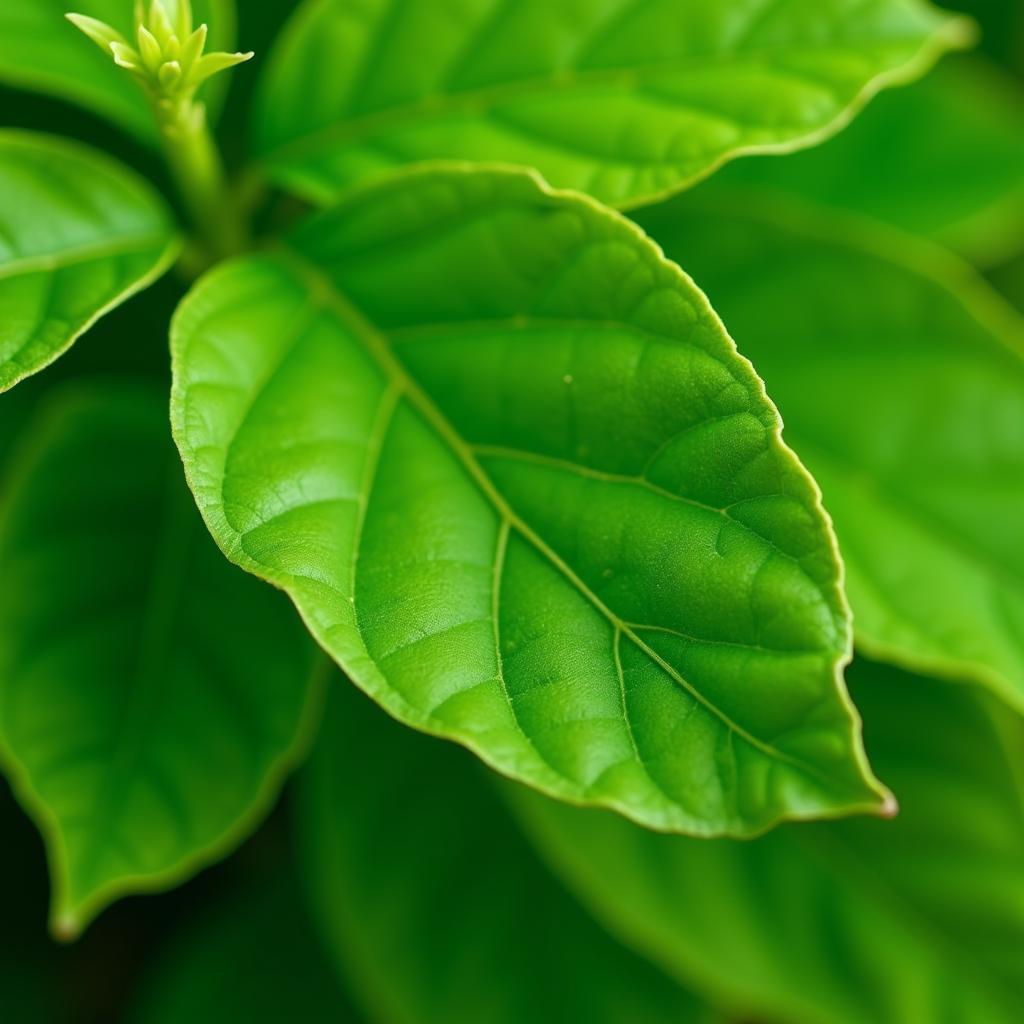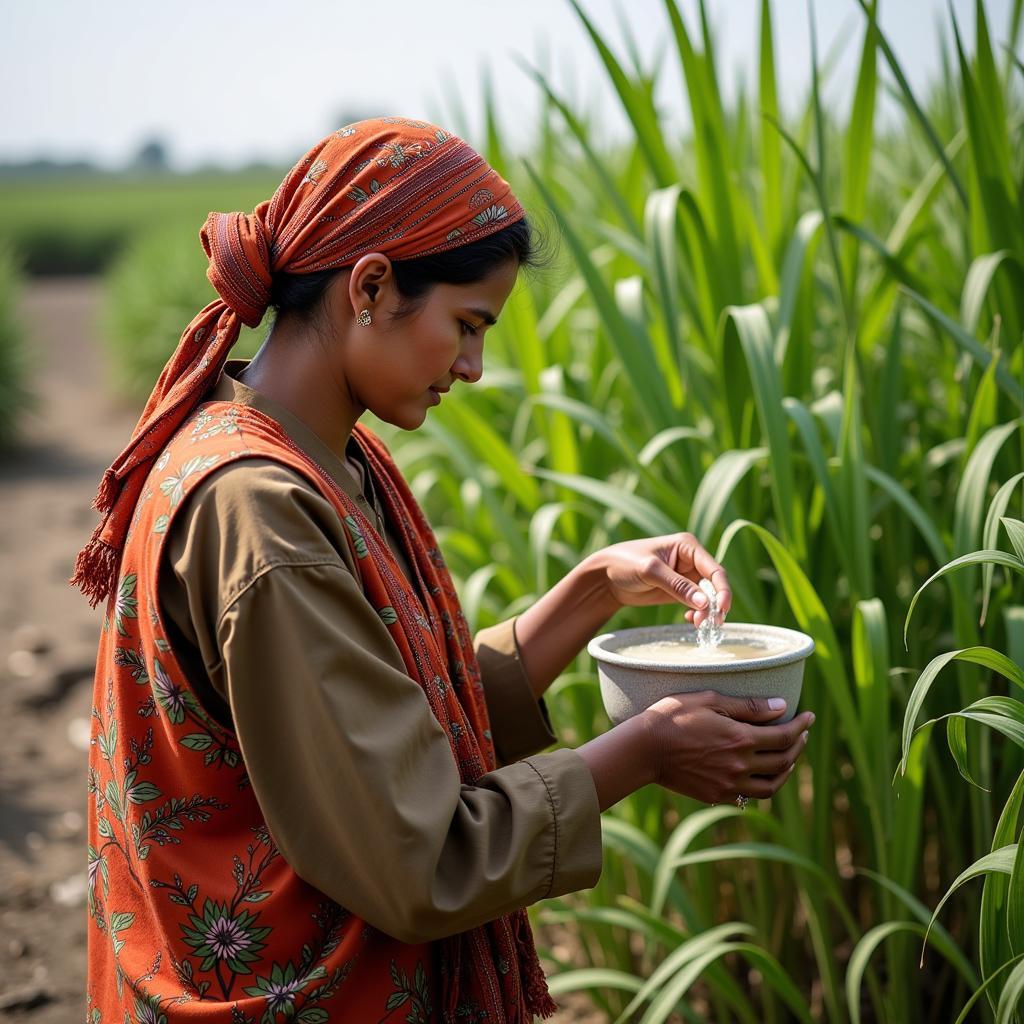The moringa tree, often hailed as the “miracle tree”, is rapidly gaining popularity in Pakistan for its incredible nutritional and medicinal properties. But this botanical wonder is more than just a health fad; it’s a sustainable resource with the potential to address various environmental and socioeconomic challenges facing the nation.
Unveiling the Moringa Tree’s Potential in Pakistan
 Moringa tree thriving in the Pakistani landscape
Moringa tree thriving in the Pakistani landscape
While native to the Indian subcontinent, the moringa tree has found a welcoming home in Pakistan’s diverse climate. From the foothills of the Himalayas to the plains of Punjab and Sindh, this resilient species thrives, offering a plethora of benefits to local communities.
A Nutritional Powerhouse: Combating Malnutrition
 Close-up of moringa leaves, packed with essential nutrients
Close-up of moringa leaves, packed with essential nutrients
Moringa leaves are a nutritional goldmine, packed with vitamins, minerals, and antioxidants. They contain significantly higher amounts of Vitamin A, Vitamin C, calcium, and potassium compared to common foods like spinach and carrots. This makes moringa an invaluable resource for combating malnutrition, particularly among women and children.
Beyond Nutrition: Moringa’s Medicinal Uses
Traditional medicine has long recognized the healing properties of moringa. Various parts of the tree, including its leaves, bark, and roots, are used to treat a wide range of ailments:
- Diabetes: Moringa helps regulate blood sugar levels, offering a natural way to manage diabetes.
- Inflammation: The plant possesses anti-inflammatory properties, potentially alleviating symptoms of arthritis and other inflammatory conditions.
- High Blood Pressure: Studies suggest that moringa can help lower blood pressure, promoting cardiovascular health.
“Moringa’s diverse medicinal applications, rooted in both traditional knowledge and supported by scientific evidence, make it a crucial resource for improving public health in Pakistan,” says Dr. Ayesha Khan, a leading botanist at the National Institute of Health, Islamabad.
Environmental Champion: Moringa for Land Restoration and Water Purification
 Moringa seeds used for water purification in a rural Pakistani community
Moringa seeds used for water purification in a rural Pakistani community
The moringa tree’s benefits extend beyond its nutritional and medicinal value. Its fast-growing nature and drought tolerance make it ideal for reforestation efforts, combating desertification, and preventing soil erosion. Additionally, moringa seeds possess remarkable water purification properties. They contain a natural coagulant that removes impurities, making clean water more accessible to communities facing water scarcity.
Economic Empowerment: Moringa’s Potential in Pakistan’s Economy
Cultivating moringa presents a significant economic opportunity for Pakistan. The growing global demand for moringa-based products, ranging from nutritional supplements to cosmetics, has opened up new avenues for export and income generation. By supporting moringa farmers and promoting sustainable harvesting practices, Pakistan can harness the economic potential of this remarkable tree.
Conclusion: Embracing the Moringa Revolution
The moringa tree offers a beacon of hope for a healthier, greener, and more prosperous Pakistan. By embracing its potential, we can create a sustainable future for generations to come.